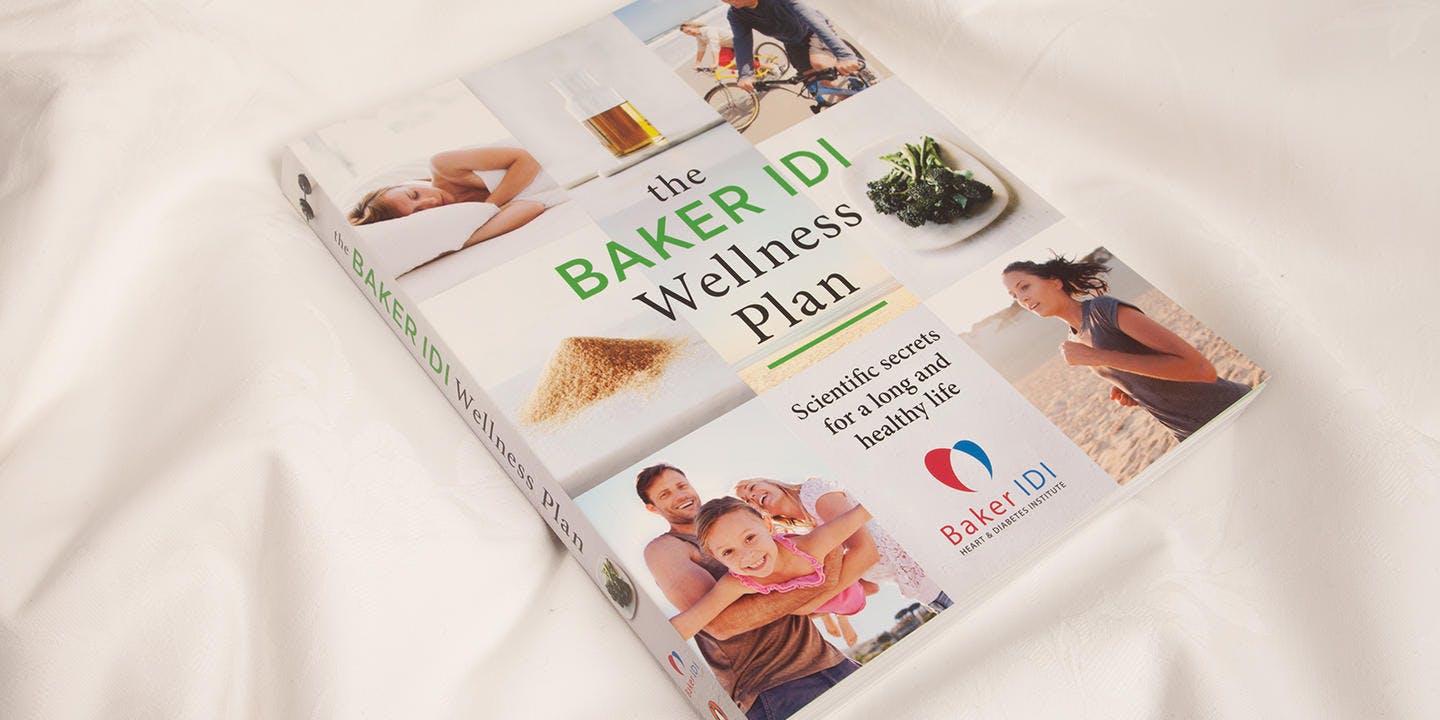Maximise your lying-down time with The Baker IDI Wellness Plan.
Sleep can be one of the first things to suffer when we are time-poor or stressed. But regular, good quality sleep is vital to our daily resilience, physical health and our long-term health. We are learning more about the vital role sleep plays in flushing toxins out from the brain as a daily ‘reset’.
You may not be able to control when you fall asleep. But you can create the right conditions for getting the right amount of sleep recommended for adults. And yes, you’ve heard correctly – eight hours sleep a night is what the average adult body requires.
WORK WITH YOUR BODY CLOCK, NOT AGAINST IT
Our sleep–wake cycle is controlled by two processes. Shift work, all-nighters and international travel can play havoc with our body clock, the 24-hour circadian rhythm that regulates the timing of sleepiness and wakefulness. Sleep is also controlled by the sleep/wake homeostasis, an internal timer than builds up pressure and releases hormones based on how long we have been awake.
Sticking to regular sleep and wake times – even on weekends – helps keep these two biological systems in check to produce quality sleep.
AVOID STIMULANTS BEFORE BED
Alcohol initially acts as a sedative to induce sleep. Before too long, however, it becomes a stimulant. It disturbs the rhythm of sleep patterns, causing restless sleep. Similarly, the nicotine in cigarettes can increase your heart rate, which makes falling asleep harder.
Avoid using both alcohol and cigarettes in the few hours before bedtime.
REMOVE SCREENS FROM THE BEDROOM
The blue light from electronic screens – such as a mobile phone, a laptop, a TV or an iPad – mimic daylight. This, in turn, can hamper your body’s production of the hormone melatonin. Because melatonin makes you feel sleepy, having these types of devices in your bedroom can mean you take longer to fall asleep (and you may also wake up more often during the night).
Turn off your devices at least 30 minutes before going to bed. You can also adopt one of the relaxing bedtime rituals listed below.
ESTABLISH BEDTIME RITUALS
A bath followed by a bedtime story is used the world-over to help children get to sleep, but there is wisdom in this for adults, too. A relaxing ritual can help induce sleep by signalling to your body and brain that it is time to relax. A bedtime ritual can include taking a shower, reading a book, writing down reflections from the day or preparing a to-do list for tomorrow. You might also like to try a little light exercise like yoga or stretching.
Choose a relaxing ritual and make it a bedtime habit. Your body will soon recognise the cue that it’s time to go to sleep.
RELAX YOUR MIND
For some people, bedtime can be the period of the day where their mind is free to think, worry, ponder, agonise and stress. Making sure you are physically tired by getting your daily quota of exercise can help ensure you are sufficiently tired at night. Emptying your mind of worries by writing them down, as a reflection or game plan for the next day, can also be helpful.
Try relaxation exercises at bedtime, such as focusing on the rise and fall of your breath, or clenching and unclenching each part of your body. These simple exercises can help reduce tension.
LET THE MORNING LIGHT IN
Our circadian biological clock is controlled by cells in the hypothalamus, the brain’s ‘control centre’. It responds to light and dark signals received through the eyes. When we are exposed to light in the morning, our eyes send signals to the relevant brain cells, triggering the release of hormones into our brain. Our body temperature also increases at this point, which is another trigger that helps us to wake up.
Opening the curtains in the morning to let the light in will help you feel less groggy when you first wake up.












